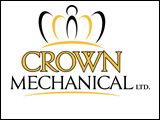The manufacture of honey is one of nature’s most amazing feats. Essentially the work is done by bees and all humans have to do is collect it and pour it into containers before placing it on the table for consumption. In the arduous job of gathering nectar from flowering plants to produce the honey, bees inadvertently collect another product which some have referred to as “nature’s most complete food.” This is pollen – tiny granules necessary for fertilization of plants – which bees take back to the hive to feed larvae or baby bees. Research scientists have found that bee pollen contains protein, a variety of vitamins and minerals, several enzymes, essential fatty acids and hormones.
The question that begs an answer is just because pollen feeds bees and brings them to maturity, is it necessarily food for humans? The fact is just because honey and related substances are “natural” and mentioned in the Bible (bee nectar is referred to 68 times in scripture) doesn’t make them superfoods or even healthy.
Bees appear in many ancient texts because they were revered for the honey and pollen produced. Early on, many cultures used pollen as an energy enhancer and restorative tonic, in the belief it prevented infection, regulated intestinal functioning and alleviated depression and migraine headaches. These testimonials led scientists to perform chemical analyses on pollen which resulted in the surprising discovery that, indeed, it was packed with a variety of nutrients and subsequently many tests have been performed on lab animals.
Essential amino acids
While not all ancient beliefs can be verified – one must allow for some “placebo effect” during eras when medicines were primitive and nutrient-dense and safe food not always available – there is evidence that humans can benefit from consuming bee pollen. It would, however, be misleading to say that one can rely on pollen for protein, for example, even though it contains all 22 essential amino acids, since one would need to ingest a great deal of the substance to get the required daily amount needed for optimum health. The same is true for vitamins B, C, E and D or calcium, selenium or magnesium even though pollen contains all of these nutrients. In all honesty, there are better and more appropriate sources for these nutrients, although ingesting bee pollen wouldn’t do any harm.
This can be better understood when you realize pollen is marketed in granules that have been garnered from bee hives. This is pollen the bee has already compacted into pellets from microscopic-sized flakes of what appears as dust – it is estimated that each pellet contains more than a million flower pollen grains. One can readily see this is not a part of regular meal plans, but is it good as a supplement, perhaps providing something unique and rarely found in common foods?
While this may sound somewhat ironic, bee pollen can help the body build up a resistance to allergies some people exhibit on encountering flower pollen. Indeed, it has been found that pollen will help clear up asthma and other respiratory diseases. This is similar to the way vaccinations prevent communicable diseases through the use of an antigen.
Strengthens blood vessels
Bee pollen is a good source of rutin, an antioxidant bioflavonoid that helps strengthen blood vessels and assists with circulatory problems. This same substance has potent anti-clotting powers which could help lower the risk of heart attack and stroke. It has also been shown that pollen contains a substance that inhibits the development of harmful bacteria in the intestines as well as an enzyme that assists in digestion, thus allowing easier transport of nutrients into the body.
Bee pollen is best purchased in granules that can be chewed and swallowed rather than in tablets which have been produced by heating and compressing pollen during which some nutrients may have been destroyed. Although it has a slightly sweet pleasant taste, it may be foreign-tasting so start with a few granules blended into a smoothie, added to trail mix or sprinkled over salads, yogurt or oatmeal. Increase the amount to one teaspoon which is considered adequate for a day. It has been found to be well tolerated by the body and free of harmful side effects.



